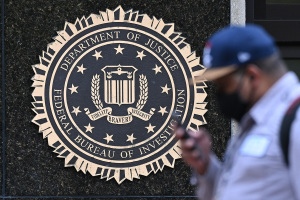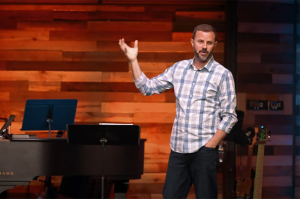Christians Applaud High Court's Partial-Birth Abortion Ruling
Christians have overwhelmingly been voicing their satisfaction with the recent ruling by the Supreme Court which upheld a 2003 law banning the controversial partial-birth abortion.
The Partial Birth Abortion Ban Act was reinforced by a 5-4 vote on Wednesday, with judges explaining that its restriction does not violate a woman's right to abortion.
"I am pleased that the Supreme Court upheld a law that prohibits the abhorrent procedure of partial-birth abortion," said President George W. Bush following the ruling. "Today's decision affirms that the Constitution does not stand in the way of the people's representatives enacting laws reflecting the compassion and humanity of America. The partial-birth abortion ban, which an overwhelming bipartisan majority in Congress passed and I signed into law, represents a commitment to building a culture of life in America."
The ruling has also encouraged Christians who feel that it may lead to states placing more restrictions on abortions. They feel that it is the first critical step toward possible abolishment of the practice.
"With today's Supreme Court decision, it is just a matter of time before the infamous Roe v. Wade decision in 1973 will also be struck down by the court," explained Roberta Combs, president of the Christian Coalition of America (CCA), in a statement. "This is a very historic decision and Christian Coalition of America commends Chief Justice Roberts and Associate Justices Scalia, Kennedy, Thomas, and Alito (the five judges who voted to uphold the ban)."
Several abortion rights groups had expressed their opposition to banning the procedure, because they have asserted that it can sometimes be the safest alternative for women. They also argued that it could threaten most abortions after 12 weeks in pregnancy.
However, those in favor of the ban pointed to its brutality.
The procedure involves partially removing the fetus intact from the patient's uterus. This is then followed by crushing or cutting the skull of the fetus, where then the doctor suctions out the baby's brain.
The court wrote the following in response to their ruling: "In a decision so fraught with emotional consequence, some doctors may prefer not to disclose precise details of the means that will be used…It is self-evident that a mother who comes to regret her choice to abort must struggle with grief more anguished and sorrow more profound when she learns, only after the event, what she once did not know: that she allowed a doctor to pierce the skull and vacuum the fast-developing brain of her unborn child…"
Several Christians have applauded the way in which the Supreme Court handled the issue, noting that the issue of abortion is complex, and there should not be a universal ruling allowing all types of abortion to occur.
"Today's decision by the Supreme Court upholds and acknowledges that the federal ban on partial-birth abortion is a reasonable restriction on abortion," said Jordan Lorence, senior counsel for the Alliance Defense Fund (ADF). "This is a welcome sign of judicial restraint from the Supreme Court. It allows legislators to deal with the complexities of the abortion situation rather than having courts impose rigid rules that block sensitive and moral-based solutions to the abortion controversy."
Anti-abortionists have said that the case will not reduce the actual number of abortions, however, since an alternative procedure – where the fetus is dismembered in the uterus – will still be available and is more common among women.
Also according to recent statistics, about 90 percent of abortions in the United States – which number over one million – occur in the first twelve weeks of pregnancy, thus unaffected by the ruling.
According to the Christian Coalition, 80 percent of Americans had supported banning partial-birth abortion.
"We are grateful to all who worked so hard to pass this law and to educate the public about this unspeakably violent procedure," concluded a statement from Priests for Life.




























